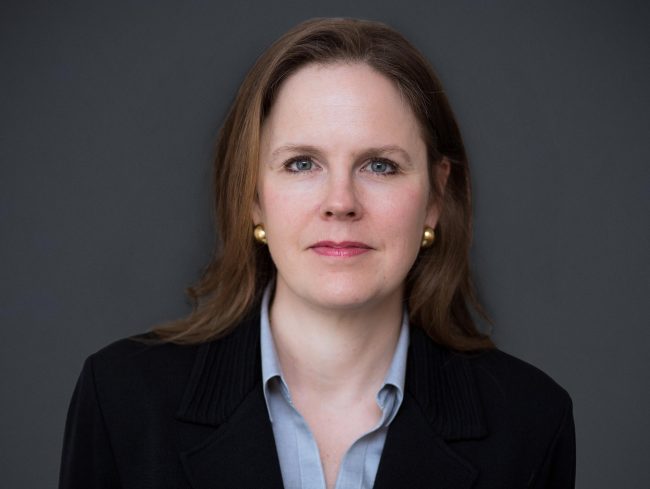Part 7 of the Building Law Reports covers the following key judgments:
- Bresco Electrical Services Ltd v Michael J Lonsdale (Electrical) Ltd [2020] UKSC 25
- Taylor Wimpey UK Ltd v Harron Homes Ltd [2020] EWHC 1190 (TCC)
- ISG Construction Ltd v Platform Interior Solutions Ltd [2020] EWHC 1271 (Comm)
- J & B Hopkins Ltd v Trant Engineering Ltd [2020] EWHC 1305 (TCC)
- Oran Environmental Solutions Ltd v QBE Insurance (Europe) Ltd [2020] EWHC 1271 (Comm)
Introduction to the Building Law Reports Part 7 [2020]
The Supreme Court again, ruled on an adjudication case in Bresco Electrical Services Ltd v Michael J Lonsdale (Electrical) Ltd. This was to do with the relationship between the statutory adjudication regime and insolvency set-off, in a case in which Bresco, in liquidation had referred a money claim to adjudication. At first instance, Fraser J had issued an injunction to stop the adjudication on both jurisdictional and futility grounds in the light of Insolvency law and practice whereby there is an automatic set-off of claims and cross claims. However, the Supreme Court resolved that there was jurisdiction because there still remained a dispute under the construction contract and the liquidator could still have brought court proceedings for the recovery of the sum claimed. So far as futility, the Supreme Court thought that the pursuit by the liquidator of an adjudication claim could represent a speedy, cost-effective and final resolution of the dispute. This will undoubtedly be a highly controversial decision, not least because, when the adjudicator’s decision in favour of the liquidator comes to be enforced, there is substantial authority that a stay of execution will be granted, with particular reference to the line of authority that runs from the Court Appeal decision in Bouygues (UK) Ltd v Dahl-Jensen (UK) Ltd.
Taylor Wimpey UK Ltd v Harron Homes Ltd was a TCC case in which Fraser J considered a preaction disclosure application on a drainage dispute between adjacent developers who were parties to a collaboration agreement. The case highlights that there is a relatively high hurdle for an applicant and relevance of the documents sought alone would not suffice. Of particular interest in this case is that there was an expert determination procedure which had been invoked by the other party, but which had been opposed on jurisdictional grounds by the applicant. Fraser J, in refusing the application, placed particular weight on the fact that the documents were recoverable within the expert determination process and that, therefore, the documents sought on the application would never be disclosable in any litigation because there would be no such litigation.
Another TCC case, ISG Construction Ltd v Platform Interior Solutions Ltd , was concerned with an attempt by the party which had lost an adjudication to bring court proceedings to seek final judgment on points of principle or indeed fact which would undermine the enforceability of the adjudication decision. The TCC judges have been sceptical about several of these attempts, many of which have involved the use of the relatively fast track Part 8 procedure. The court held here, as it has on a number of previous occasions, that the only circumstances in which this fast track procedure can be used to secure final judgments on the issues which were the subject matter of an adjudication decision are where there is an admitted error or where the issue is a short, self-contained point which arose in the adjudication but requires no oral evidence or other elaboration capable of being provided during a relatively short interlocutory hearing, and where it would be unconscionable for the court not to consider it.
J & B Hopkins Ltd v Trant Engineering Ltd involved another adjudication decision enforcement case in the TCC which raised the novel point, termed the “correction principle”. This “principle” was where a disputed claim referred to adjudication made by a contractor entitled to payment was based not upon a certified sum but its payment application in respect of which there have been no Payment Notice from the paying party; this was said to have been later corrected in a subsequent certificate after the first adjudication reference. It was then said that it would be wrong to enforce the adjudication decision based on amount which was later certified to have been overstated. Fraser J said that this did not fall into the normal grounds of challenge, namely, natural justice and/or jurisdiction. The adjudication decision was enforced. It could be said that it would be open to the paying party itself later to refer to adjudication a claim for overpayment based on the later adjusted certificate which showed the overpayment.
Finally, the Commercial Court in Oran Environmental Solutions Ltd v QBE Insurance (Europe) Ltd considered the question on a fire insurance claim in court when the claim form was to be served. A claim form has to be served within four months of issue but, here, there were agreed extensions of time, the last one being the final consent order being to serve the claim form and the Particulars of Claim by 16.00 on 6 January 2020. Before 16.00 on that day, the claimant’s solicitors sent the documents by special delivery to the defendant’s solicitors, replicating them by fax and email as well as sending them to the defendant by special delivery post and email. Service on the solicitors was not effective because they had not been instructed to accept service. Service by email on the defendant was not effective either under the Rules. However, service was properly achieved by posting before 16.00, because the Rules allowed for that, even if the documents served did not arrive by then. The consent order would be construed to reflect the Rules.
About the Building Law Reports
Edited by members and former members of Atkin Chambers, the Building Law Reports are essential reading for legal professionals, construction industry professionals, law libraries and universities. Each report provides expert commentary on key judgments from the editors, including the substance of a case and its implications on past and future decisions.
Described as “the most established and authoritative construction law reports available”, they provide comprehensive coverage from the Technology and Construction Court, Court of Appeal, Supreme Court and other relevant jurisdictions worldwide, including Hong Kong, Australia and Singapore.
Consulting Editor: The Honourable Mr Justice Fraser
General Editors: Sir Robert Akenhead, Chantal-Aimée Doerries QC, Dominique Rawley QC, Marc Lixenberg, Omar Eljadi and Felicity Dynes.











